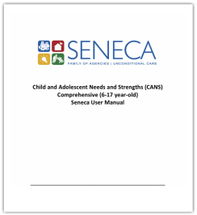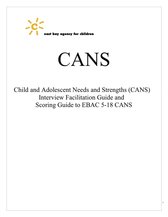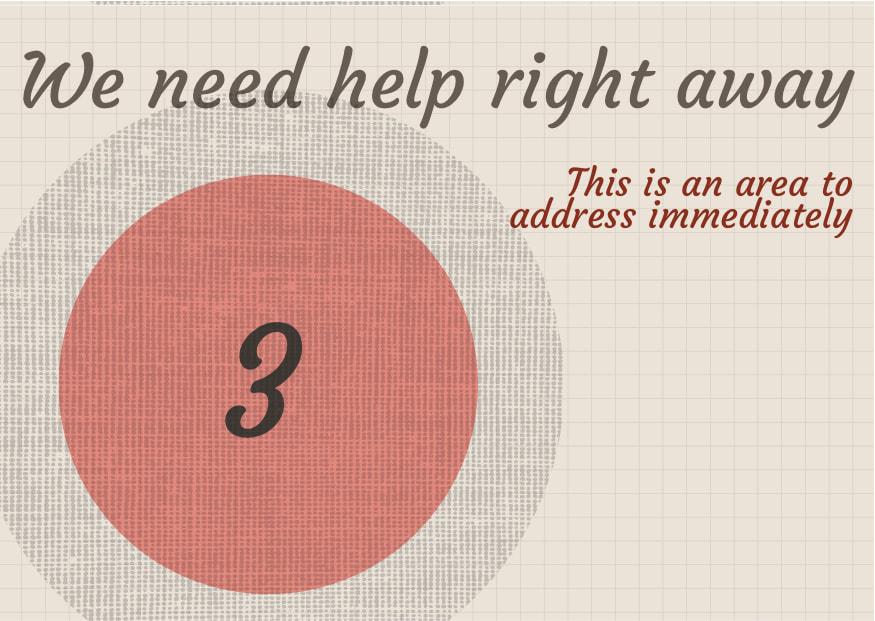CANS MANUAL 6-17, COMPLETE & BY SECTION
|
> In this section, you will find the Child and Adolescent Needs and Strengths (CANS) Comprehensive Seneca User Manual for clients ages 6-17, complete and divided by section. Click directly on the manual icon and headings below for more.
You will also find the complete CANS Interview Facilitation Guide and Scoring Guide to EBAC 5-18. Click directly on the manual icon for more. |
SENECA USER MANUAL (6-17) BY SECTION
|
The basic design for rating NEEDS
The basic design for rating STRENGTHS It is an Assessment Strategy
It Guides Care & Treatment Planning It Helps to Establish Medical Necessity It Facilitates Outcomes Measurement It is a Communication Tool Making the best use of the CANS
Listening using the CANS Redirect the conversation to parents'/caregivers' own feelings & observations Acknowledge Feelings Wrapping it Up |
Traumatic Stress Symptoms
Sexual Abuse Sub-Module (2a) Historical Risk Factors
Emotional/Behavioral Risks Resiliency Factors |
COLLABORATORS
A large number of individuals have collaborated in the development of the CANS version. Along with the CANS, versions for developmental disabilities, juvenile justice, and child welfare, this information integration tool is designed to support child case planning and the planning and evaluation of service systems. The CANS-Comprehensive is an open domain tool for use in service delivery systems that address the mental health of young adults and their families. The copyright is held by the Praed Foundation to ensure that it remains free to use. For more information on implementation of the CANS, contact Jennifer Cárdenas, LCSW, here.
We greatly appreciate the support of Alameda County BHCS leadership, who provided the resources needed to develop this manual. In addition, we owe special thanks to our Alameda County CANS Provider Collaborative partners whose constructive feedback helped to shape the form and content of this manual: April Fernando (WestCoast Children’s Clinic), David Channer (A Better Way), and Jen Leland (East Bay Agency for Children). Seneca Family of Agencies
A large number of individuals have collaborated in the development of the CANS version. Along with the CANS, versions for developmental disabilities, juvenile justice, and child welfare, this information integration tool is designed to support child case planning and the planning and evaluation of service systems. The CANS-Comprehensive is an open domain tool for use in service delivery systems that address the mental health of young adults and their families. The copyright is held by the Praed Foundation to ensure that it remains free to use. For more information on implementation of the CANS, contact Jennifer Cárdenas, LCSW, here.
We greatly appreciate the support of Alameda County BHCS leadership, who provided the resources needed to develop this manual. In addition, we owe special thanks to our Alameda County CANS Provider Collaborative partners whose constructive feedback helped to shape the form and content of this manual: April Fernando (WestCoast Children’s Clinic), David Channer (A Better Way), and Jen Leland (East Bay Agency for Children). Seneca Family of Agencies




